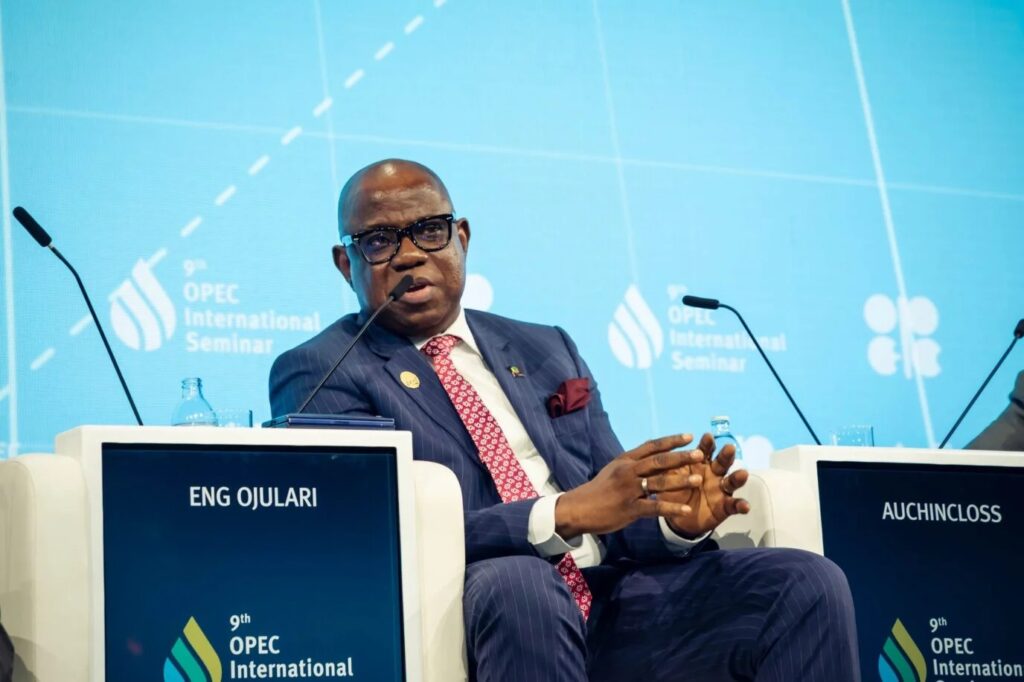…. Nigeria’s Refineries Will Never Work Again, Says Dangote
The Nigerian National Petroleum Company Limited (NNPC) is rethinking its decades-long refinery rehabilitation strategy, with the possibility of selling the state-owned facilities now firmly on the table, amid deepening operational setbacks and rising costs.
Speaking to Bloomberg at the 9th Organisation of Petroleum Exporting Countries (OPEC) International Seminar in Vienna, NNPC Group Chief Executive Officer, Bayo Ojulari, admitted that years of effort and massive investment in refurbishing the Port Harcourt, Warri, and Kaduna refineries have yielded little progress.
Ojulari disclosed that while the company had deployed advanced technologies in its bid to restore the ageing facilities, the complexity of reviving long-neglected infrastructure has proven more difficult than anticipated.
“We made quite a lot of investments over the last several years and brought in a lot of technologies. Unfortunately, some of those technologies have not worked as expected,” he said. “When you’re refining a very old refinery that has been abandoned for some time, we’re finding it’s becoming a little more complicated.”
The Port Harcourt refinery, which briefly resumed operations in November 2024, was again shut down in May 2025 for additional maintenance. The Warri and Kaduna plants remain under rehabilitation.
Ojulari revealed that the NNPC is conducting a comprehensive strategic review of its refining assets and operations, expected to be completed before the end of the year. On whether a sale is part of the options, he said: “Sale is not out of the question. All options are on the table.”
In a related development, Africa’s richest man and industrialist, Aliko Dangote, has cast a dark shadow over the future of Nigeria’s government-owned refineries, declaring them beyond salvation despite a reported $18 billion investment by the federal government.
Hosting members of the Global CEO Africa delegation at the Dangote Refinery in Lekki, Lagos, on Thursday, Dangote likened the government’s rehabilitation efforts to “modernising a 40-year-old car,” warning that the facilities are outdated and structurally incapable of meeting modern refining demands.
“They have spent about $18 billion on those refineries, and they are still not working. I don’t think — and I doubt very much — if they will ever work,” Dangote said.
He also recalled his company’s earlier acquisition of the refineries in 2007, which was reversed under the late President Umaru Musa Yar’Adua’s administration following pressure from NNPC insiders who believed the assets could still be salvaged.
Despite ongoing rehabilitation efforts, NNPC has struggled to deliver functioning refineries. In 2021 alone, the Federal Executive Council approved $1.5 billion for the Port Harcourt facility and an additional $1.48 billion for Warri and Kaduna refineries, in phases meant to span 33 months.
Ojulari also raised concerns about Nigeria’s high oil production costs, which he said currently range between $20 and $30 per barrel—among the highest globally. He attributed the spike partly to heavy investments in pipeline security, which has, however, resulted in 100% availability of the company’s pipeline infrastructure.
He expressed optimism that operating costs will reduce as security stabilizes, and disclosed that NNPC is targeting an increase in crude oil output to 1.9 million barrels per day by the end of 2025.
Meanwhile, the Dangote Petroleum Refinery—privately funded at a cost of $19 billion—has begun producing diesel and aviation fuel, with petrol production set to commence by the end of July 2025. Over 50 percent of its output is expected to go toward Premium Motor Spirit (PMS).
Dangote’s rapid progress has renewed public scrutiny over the government’s decades-long dependence on fuel importation and recurring allocation of billions to non-functional refineries.
As global energy priorities shift and fiscal pressures mount, many analysts and stakeholders are now questioning whether Nigeria should continue sinking resources into obsolete refining infrastructure—or finally opt for divestment.
With NNPC’s strategic review underway and skepticism mounting, the fate of the refineries—and the nation’s refining future—hangs in the balance.
Do you want to share a story with us? Do you want to advertise with us? Do you need publicity for a product, service, or event? Contact us on WhatsApp +2348183319097 Email: platformtimes@gmail.com
We are committed to impactful investigative journalism for human interest and social justice. Your donation will help us tell more stories. Kindly donate any amount HERE




